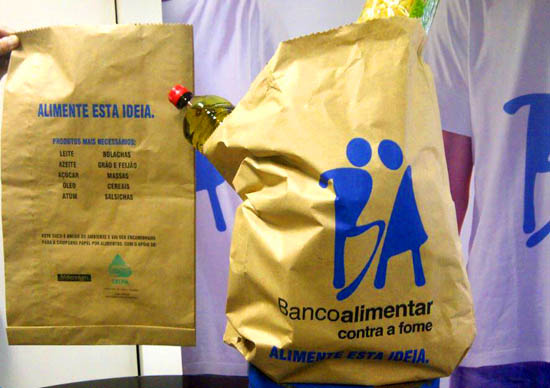The number of requests for help made to the Food Emergency Network increased again in September, exceeding 30 per day, a trend that leads the president of the Food Bank to warn of the risk of social disruption.
In an interview with Lusa agency, on the occasion of the International Day for the Eradication of Poverty, which is marked on October 17, the president of the Food Bank against Hunger (BA) said that the Food Emergency Network, created in March to give In response to requests for help following the pandemic, there was again an increase in demand.
«Since the last week of September we see that there is again an increase in the number of requests for support, either because people have lost their jobs again, because they worked in the restaurant, hotel, sector, more linked to tourism, or because the situation of lay-off was prolonged and many people remain at home without being able to return to work and earn a full salary», points out Isabel Jonet.
The number of daily help requests is a far cry from the roughly 350 that arrived every day at the beginning of the state of emergency to the telephone lines of the call center purposely created to serve all the people who called "desperate" because "suddenly they were without any pay and were thrown into a situation of poverty."
Data collected through the Emergency Network, created on March 19, show that right after the closing of the economy, between the end of March and April, there were around 350 requests for help per day, which represented an increase of around 60 people compared to the 380 supported by 21 Food Banks across the country before the pandemic, through 2600 social institutions.
According to Isabel Jonet, that number then slows down in July and August, and reduces to an average of 30 to 35 requests for help per day, "when tourism opened up a little and there was oxygen again", a number that starts again in September increasing, with days to register 40 or 45 requests.
In October, the average has been 31 requests for help per day, but in the last week, for example, there were days when 55 requests arrived on the same day.
«Yesterday [Tuesday], for example, there were 49», adds the president of BA.
Isabel Jonet recalled that covid-19 "had a very large social impact because it brought people who were normally not used to being in this situation into poverty", as they "had a balanced life and earned enough to cope to their expenses, but suddenly they were without any remuneration and were thrown into a situation of poverty».
Of the total number of people who have so far asked for help through the Food Emergency Network, 82,6% are women, the majority (77,5%) aged between 31 and 65 years.
On the other hand, an analysis of the socioeconomic situation shows that 50,48% of people who ask for help are unemployed, but there are also those who are working full time (12,47%) or do just odd jobs (10,55%) .
Those who ask for help have dependents and in 52% of cases they are families with children up to 12 years old.
"We are seeing two things: orders increase because many people are still out of work, but then because the oxygen that came with the summer is gone, the internal tourism is gone and some breath that came with the summer is gone." pointed out Isabel Jones.
The explanation for the increase in the number of orders could also be another and the responsible thinks that many of these people are trying to anticipate what might happen at the end of October or November, «which is when the economy will shrink more» .
"These people are already cautious about asking for help because they already calculate that at the end of the month they won't have a job", says Isabel Jonet, giving as an example cases of people who are still in a lay-off situation, but who "already know they will be fired'.
Isabel Jonet says she was surprised by the families' resilience, pointing out that there could have been a "total revolt", and that all of this has to be an example when talking about people who "had their lives turned upside down and were confronted with a reality that they were completely unaware of».
"You have to be careful that there are no social disruptions because when situations are prolonged without any farol in sight, people can reach stages of despair, especially when we have families with children who every day have to face great difficulties», he warned.
In this sense, he pointed out that the package of measures provided for in the State Budget for 2021 "is very good", but it is mainly aimed at people with the lowest incomes, when there are middle-class people whose current income "is not even enough to face half of the usual expenses'.
"These people endure for a while, but it is not expected that they can passively accept for much longer," he warned, adding that these people will fall into what is called cyclical poverty, as opposed to structural poverty that affects about 19% of the population. Portuguese population, in particular people with low pensions, with disabilities or low qualifications.



















Comments